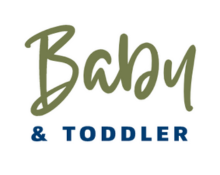
Breastfeeding an unsettled baby can be challenging, but there are strategies you can try to help soothe and calm your baby during and after feedings. Here are some tips:
Check for hunger cues: Ensure that your baby is hungry and ready to feed. Look for signs such as rooting, sucking on their hands, or making smacking sounds. Sometimes babies may appear unsettled when they are not actually hungry, on the flip side they may be showing late signs of hunger so try to look for those early signs and feed before baby becomes unsettled.
Comfort and relaxation: Create a calm and comfortable environment for breastfeeding. Find a quiet place where you and your baby can relax without distractions. Dim the lights, play soft music, or use white noise to create a soothing atmosphere.
Skin-to-skin contact: Before and during breastfeeding, practice skin-to-skin contact with your baby. Undress your baby down to their diaper and hold them against your bare chest. This promotes bonding, releases feel-good hormones, and helps your baby feel secure and comforted.
Offer a pacifier: If your baby appears to be seeking comfort and non-nutritive sucking, you can offer a pacifier after breastfeeding. Pacifiers can provide a soothing effect and help satisfy your baby’s need for sucking.
Try different breastfeeding positions: Experiment with different breastfeeding positions to find one that is comfortable for both you and your baby. Some babies may prefer a more upright position, while others may find more comfort in a cradle or side-lying position.
Burp your baby: During and after feedings, take breaks to burp your baby. Gently pat or rub their back to help release any trapped air, which can contribute to discomfort and fussiness.
Consider your baby’s comfort: Ensure that your baby is not experiencing any discomfort that may be affecting their ability to breastfeed and stay settled. Check for signs of diaper rash, clothing that may be too tight, or any other potential sources of discomfort.
Seek support: If your baby continues to be unsettled despite your efforts, consider reaching out to a lactation consultant or healthcare provider for further assistance. They can help assess your baby’s feeding and behavior patterns and provide additional guidance tailored to your specific situation.
Remember that babies have their own unique personalities and preferences, so it may take some trial and error to find what works best for your baby. Be patient and keep experimenting with different techniques until you find what helps soothe and settle your little one during breastfeeding.
